Quran Tafsir : Sura Al Kahf
This sura which has been revealed in Mecca is the 18th sura in the Holy Quran. It has been named after “a group of people living in the cave”, since Al-Kahf means cave in Arabic. That chapter, which will be discussed briefly below is considered as name-giver for this sura. It tells the qissa(news-story) of “People of Cave”, Ashab-u Al-Kahf
Kahf means wide cave located inside a mountain. Some scholars note that delving into deeper meanings of this sura will propagate such a meaning that, this sura is in fact like a cave, if Holy Quran can be considered as a mountain. Because if one enters this “cave”, one shall find some of the most substantial and thought-provoking stories of the Holy Quran, such as meeting of Prophet Moses(a.s) and Al-Kidhr and travels of Dhul-Qarnayn.
The reason and circumstances of revelation for this sura is to generate a reply to non-believers who tried to conspire and dared to challenge Prophet Muhammed (saw) on intellectual and historical grounds. Ibni Ishaq notes that there was Nadr b. Hâris of Quraish tribe who tried to interfere any time Prophet Muhammed (saw) was preaching the public, claiming to deliver “better stories” than the Prophet himself.
Other moguls of Quraish wanted to exploit this man in order to reduce the influence of Prophet’s message upon the public. Along with him, they sent Ukbe b. Mu’ayt to the jewish rabbis of Madina. The rabbis induced the two to challenge Prophet Muhammed (saw) by asking about “the young people of the cave in ancient times, and the traveler who reached the eastern and westers edges of the earth and any information about human soul”
Sura Al-Kahf has done more than just answering these questions and washing away the doubts of non-believers as it starts with the warning of “Praise be to Allah, Who hath sent to His Servant the Book, and hath allowed therein no Crookedness”, which is the first verse of this sura, to inform mankind not to doubt the divinity of Holy Quran according many Turkish mufassirs like Abu Suud Efendy and Mehmed Wahbi of Konya and Hamdee Yazeer of Elmali.
First qissa is the inspiring story of People of cave, where these young brave men has been enduring a test of faith and they have ascertained themselves not to return to the paganist traditions of their society after they have been blessed with “tawheed”, Allah’s(j.j) one-ness and uniqueness. They sought refugee in a cave, where Allah(j.j) granted them more than physical shelter, by miraculously putting them into “hyper-sleep” so that they can survive for very long time by-passing the tyranny of their own society.
Second qissa is the story of an anonymous poor and an anonymous rich, where the rich forgets about the poor as he is buried in his own mundane duties of protecting his wealth and tries to distance himself from the poor, unsurprisingly and universally, since it is what most rich people do.
Third qissa is the meeting of Prophet Moses(a.s) and Al-Kidhr which we hope to discuss in an article of its own since mysterious personality of AL-Kidhr has been inspirational to many sufi traditions and his meeting with Prophet Moses(a.s) is like a conundrum of “ilm-i ladun” which is “the study of divine secrets”.
Fourth qissa is the story of Dhul-Qarnayn, which we should mention him in great detail in another article inshaAllah. There are several different of interpretations of his qissa in classic tafsirs but one notably quite contrary as Turkish writer-scholar Iskender Ture basically suggest the possibility of Dhul Qarnayn travels was of a interstellar nature in his book “Dhul Qarnayn”, published in 1998 in Turkey
Despite different interprations of these qissas in Sura Al Kahf, one thing is certain. Prophet Muhammed(saw) stated the virtues of Sura Al Kahf;
“Whoever reads Sura Kahf on Friday, light shall shine forth for him between the two Fridays.” according to a hadith in Al-Mustadrak alaa al-Sahihain, by Hakim al-Nishaburi.
And;
“He who amongst you would survive to see The False Messiah, Ad-Dajjal, should recite over him the opening verses of Sura Kahf”
Sahih Muslim, Book 41, Number 7015[8]
Baris Tarimcioglu/islamoformation.com



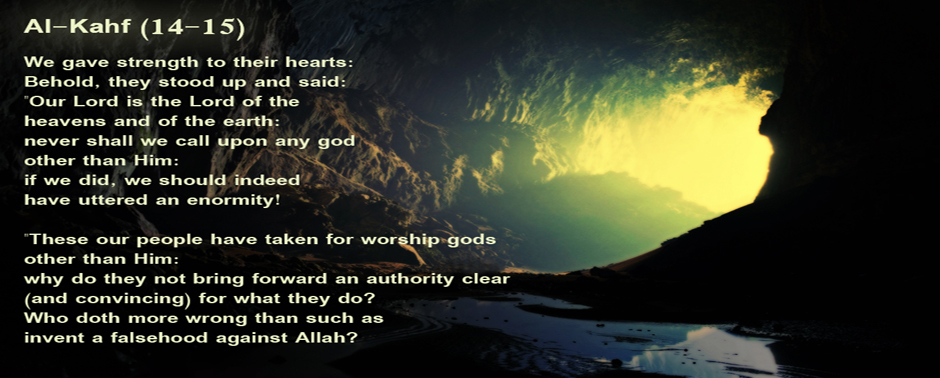
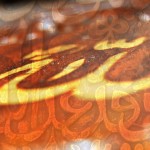
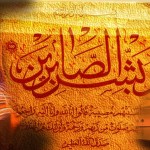
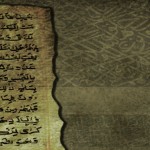
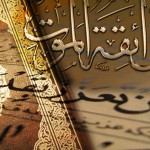
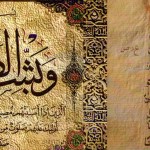
You must be logged in to post a comment Login